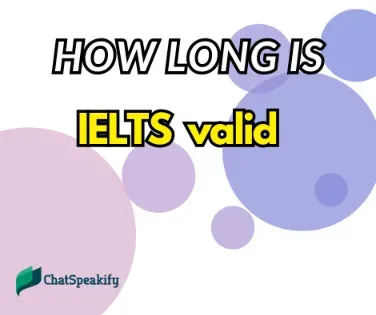The Validity of IELTS Results: Everything You Need to Know
As someone who’s been through the IELTS experience, I can’t stress enough how important it is to understand the validity period of your test results. Whether you’re preparing for study abroad, immigration, or job hunting, this information is crucial. Let’s dive into this topic together!
How Long Are IELTS Results Valid?
According to the official guidelines, IELTS results are typically valid for two years. This means that you have a two-year window to use this score from the day you receive your results. Whether you’re applying to universities, processing immigration papers, or seeking job opportunities that require proof of English proficiency, your score is valid during this period.
Why Two Years?
You might wonder, why two years? Well, it’s actually a well-thought-out decision. The IELTS testing authorities believe that language skills can change over time, especially if you’re not using English regularly. In my opinion, two years is a reasonable timeframe - it’s not so short that it puts undue pressure on test-takers, but not so long that the scores lose their relevance.
What Does This Mean for Us?
Understanding this validity period has significant implications for our real-life plans. Let me share some experiences and advice:
University Applications: If you’re planning to apply to foreign universities, it’s best to take the IELTS within two years of your application deadline. I had a friend who overlooked this point and had to hurriedly retake the test - talk about stress!
Immigration Applications: English-speaking countries like Canada, Australia, or the UK typically require recent proof of language proficiency when processing visa and immigration applications. An IELTS score within the two-year validity period fits the bill perfectly.
Job Hunting: Some jobs, particularly those requiring frequent use of English in international settings, might ask for recent English proficiency proof. I actually landed a great job opportunity once because I had a high IELTS score that was less than two years old.
How to Ensure Your IELTS Score Stays Valid?
Based on my experience, here are some tips:
Time Your Test Wisely: Choose the most appropriate time to take the test based on your plans. Don’t take it too early (risking expiration) or too late (leaving no time for preparation).
Update When Necessary: If your IELTS score is about to expire but you still need it, consider retaking the test.
Maintain Your Skills: Even if you have a valid score, keep practicing your English. This not only helps you easily retake the test if needed but also ensures your actual English level matches your score.
Special Situations
While two years is the standard validity period, I’ve found that some institutions may have their own policies. For instance, I once encountered a university that accepted my score that was slightly over two years old because I could prove I’d been consistently using English. So, my advice is to always check the specific requirements when applying.
Conclusion
In essence, the two-year validity period for IELTS results is both reasonable and practical. It ensures your English proficiency proof is current while giving you ample time to plan and achieve your goals.
Remember, taking the IELTS isn’t just about getting a score - it’s about improving your English skills. Even if your score expires, the language skills you’ve gained will benefit you for life. So, keep your passion for learning alive, believe in yourself, and you’ll go far on your English journey!
